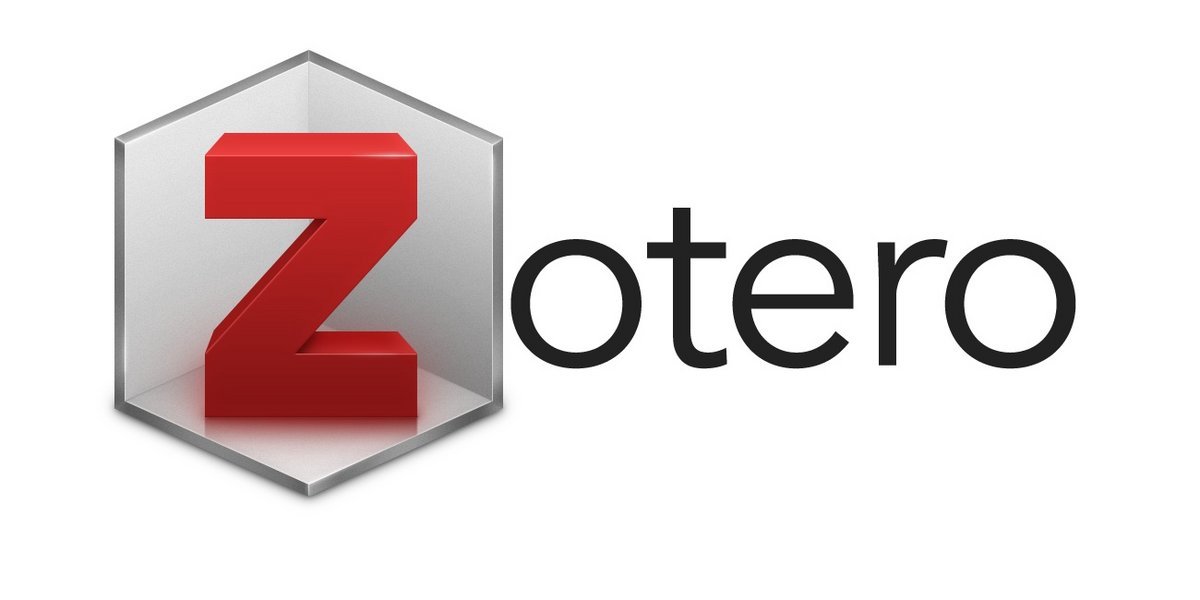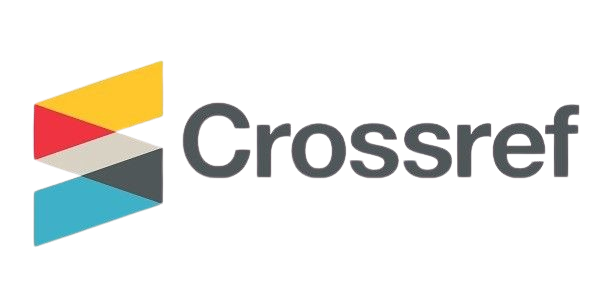Efektivitas metode Baca Tulis Qur’an (BTQ) dalam meningkatkan kemampuan membaca Al-Qur’an siswa SMA Islam
The effectiveness of the Qur’an reading and writing (BTQ) method in improving Islamic high school students’ Qur’an reading skills
DOI:
https://doi.org/10.70757/kharismatik.v3i2.76Keywords:
BTQ method, Quranic reading ability, Islamic education, pedagogical strategiesAbstract
This study addresses the critical issue of low Quranic reading proficiency among students at SMA Islam Miftahussa'adah, a secondary school in Indonesia, where preliminary data revealed significant deficiencies in fluency, tajwid application, and letter recognition. The primary objective was to analyze the effectiveness of the Quranic Reading and Writing (BTQ) method in enhancing students' ability to read the Quran correctly. Using a mixed-methods approach, the research combined a quasi-experimental design with qualitative data collection. A sample of 21 students was selected through random sampling, and data were gathered via validated questionnaires, participatory classroom observations, and in-depth interviews with both the teacher and students. The results demonstrated a 15% average improvement in overall Quranic reading ability, with notable gains in reading fluency (20%), mastery of makharijul huruf (18%), and understanding of tajwid (15%). Statistical analysis confirmed a significant positive correlation between the BTQ method and reading proficiency. In conclusion, while the BTQ method shows substantial potential, its effectiveness is heavily dependent on implementation quality, particularly regarding teaching methodology variation and media utilization. The study implies the necessity for comprehensive teacher training in diverse pedagogical strategies and the integration of digital learning tools to optimize BTQ instruction and address the multifaceted challenges of contemporary Islamic education.
References
Ahmad, K. A., Asni, F., Hasbulah, M. H., Hashom, H., Mustafa, W. A., Noor, A. M., Tambak, S., & Nasir, K. (2025). Mobile learning of Islamic studies: A comprehensive review. Journal of Advanced Research in Applied Sciences and Engineering Technology, 48(2), 211–224.
Aini, S. N. (2025). A Comparison of Traditional and Modern Qur’anic Teaching Methods in Islamic Education. Journal of Noesantara Islamic Studies, 2(1), 23–32. https://doi.org/10.70177/jnis.v2i1.1843
Arifin, S., In’am, A., & Nurhakim, M. (2025). Strategi Penguatan Pendidikan Agama Islam Di Sekolah. UMMPress. https://books.google.co.id/books?id=hAlMEQAAQBAJ
Ashoumi, H., & Yusuf, M. A. (2024). Pendidikan Inklusi: Integrasi Konsep Konstruktivistik Vygotsky dan Landasan Al-Qur’an untuk Mendukung SDGs 4. Intelektual: Jurnal Pendidikan Dan Studi Keislaman, 14(3), 321–344.
Braun, V., & Clarke, V. (2021). Thematic Analysis: A Practical Guide. SAGE Publications. https://books.google.co.id/books?id=mToqEAAAQBAJ
Braun, V., & Clarke, V. (2022). Thematic analysis: A practical guide. SAGE.
Choiriyah, S. (2022). Kolaborasi Penerapan Metode Muri Q dengan Metode Imla dalam Pembelajaran BTQ Juz 30 di TPQ Darussalam Sidolaju. Institut Agama Islam Negeri Surakarta.
Choirudin, C., & Saman, S. (2025). Integrasi teknologi digital melalui manajemen inovasi pendidikan di SDN 1 Bumi Dipasena Mulya. Jurnal Pendidikan Guru Madrasah Ibtidaiyah Al-Multazam, 11(1), 62–70.
Cohen, L., Manion, L., & Morrison, K. (2017). Research Methods in Education (8th edn). Routledge.
Cohen, L., Manion, L., & Morrison, K. (2018). Research methods in education (Eighth edition). Routledge.
Creswell, J. W. (2012). Educational research: Planning, conducting, and evaluating quantitative and qualitative research (4th ed). Pearson.
Dewi, N. P. J., Wiarta, I. W., & Agustika, G. N. S. (2020). Metode Pembelajaran Drill Berbasis Masalah Kontekstual Terhadap Kompetensi Pengetahuan Matematika. Mimbar Pgsd Undiksha, 8(2), 214–224.
Dörnyei, Z., & Taguchi, T. (2009). Questionnaires in Second Language Research: Construction, Administration, and Processing. Taylor & Francis. https://books.google.co.id/books?id=yXKNAgAAQBAJ
Fadholi, A., & Wahidah, N. (2025). Efektivitas pendekatan kontekstual dalam pembelajaran PAI: Analisis literatur terhadap tantangan era digital. An-Nadwah: Journal Research on Islamic Education, 1(01), 39–49.
Field, A. (2024). Discovering Statistics Using IBM SPSS Statistics. SAGE Publications. https://books.google.co.id/books?id=83L2EAAAQBAJ
Firdaus, F. (2020). Esensi Reward dan Punishment dalam Diskursus Pendidikan Agama Islam. Jurnal Pendidikan Agama Islam Al-Thariqah, 5(1), 19–29. https://doi.org/10.25299/al-thariqah.2020.vol5(1).4882
Fitri, A. (2025). Evaluasi Pendidikan Dalam Perspektif Al-Qur’an. Menulis: Jurnal Penelitian Nusantara, 1(6), 1026–1036.
Fraenkel, J. R., Wallen, N. E., & Hyun, H. H. (2012). How to Design and Evaluate Research in Education. McGraw-Hill Higher Education. https://books.google.co.id/books?id=21w3YgEACAAJ
Hashim, R., & Ssekamanya, S. A. (2014). Islamization of Human Knowledge in Theory and Practice: Achievements, Challenges and Prospects in the IIUM context. IIUM Journal of Educational Studies. https://doi.org/10.31436/ijes.v1i1-2.18
Hefner, R. W. (2020). The Best and Most Trying of Times: Islamic Education and the Challenge of Modernity. In M. N. M. Osman (Ed.), Pathways to Contemporary Islam (1st edn, pp. 99–124). Amsterdam University Press. https://doi.org/10.1017/9789048539291.005
Husnullail, M., & Jailani, M. S. (2024). Teknik pemeriksaan keabsahan data dalam riset ilmiah. Jurnal Genta Mulia, 15(2), 70–78.
Imaniyah, R. U., & Hidayah, R. (2024). Efektivitas Program Baca Tulis Al-Qur’an Dalam Membentuk Karakter Religius. Ar-Rihlah: Jurnal Inovasi Pengembangan Pendidikan Islam, 9(2), 158–171.
Jackson, P. (2019). Tarikh-i Firoz Shahi. An English Translation By ISHTIYAQ AHMAD ZILLI. Journal of Islamic Studies, 30(1), 117–119. https://doi.org/10.1093/jis/ety052
Jannah, U., Sulthoni, A., & Ridho, M. (2024). An Analytical Study of the Quranic Tafsir Translation in the" Al-Quran Terjemahan Tafsir" Application. Jurnal Ilmiah Al-Mu’ashirah: Media Kajian Al-Qur’an Dan Al-Hadits Multi Perspektif, 21(2), 232–243.
Jeihansyah, R. D., Muthohar, S., & Fatmawati, N. M. (2025). Problematika Pembelajaran Baca Tulis Al-Qur’an (BTQ) Pada Mahasiswa Non-Madrasah dan Mahasiswa Thailand Di Perguruan Tinggi Islam. Jurnal Pendidikan Agama Islam, 4(2), 613–622.
Kurniawan, W. A. (2012). Perbedaan Pengaruh Latihan Passing Bawah Melalui Pendekatan Individu Dan Pendekatan Kelompok Untuk Meningkatkan Ketepatan Passing Bawah Siswa Psb Bonansa Uns Surakarta Usia 9-10 Tahun.
Kvale, S., & Brinkmann, S. (2009). InterViews: Learning the Craft of Qualitative Research Interviewing. SAGE Publications. https://books.google.co.id/books?id=bZGvwsP1BRwC
La Ode Ilman, T., & Ishomudin, K. (2021). Literasi Al-Qur’an di Sekolah Negeri; Studi Model, Implementasi, dan Evaluasi Kebijakan BTQ di Sekolah Dasar Negeri Kota Ternate. Gestalt Media.
Lutfiani, N. (2024). Manajemen Pendidikan Tekno-Dai Berbasis Al-Qur’an Dan Implementasinya Di Yayasan Huffadz Gemma Kota Bogor.
Mahdali, F. (2020). Analisis kemampuan membaca Al-qur’an dalam perspektif sosiologi pengetahuan. Mashdar: Jurnal Studi Al-Qur’an Dan Hadis, 2(2), 143–168.
Manaf, S., Rokimin, Mahendra, B. A., & Romidi. (2023). Efektivitas Metode Pembelajaran Baca Tulis Al-Qur’an (BTQ) Terhadap Kemampuan Membaca Al-Qur’an santri Cilik TPQ Darunnajah Jakarta. Bisma: Jurnal Pengabdian Masyarakat, 1(2), 172–181. https://doi.org/10.61159/bisma.v1i2.178
Miranda, A., Rahmawati, S., & Adiyono, A. (2024). Gamifikasi Dalam Pembelajaran Al-Qur’an Dan Hadits Di Madrasah Aliyah: Meningkatkan Motivasi Dan Partisipasi Siswa. FIKRUNA: Jurnal Ilmiah Kependidikan Dan Kemasyarakatan, 6(2), 70–85.
Nasr, S. H. (Ed.). (2015). The study Quran: A new translation and commentary (First edition). HarperOne, an imprint of Collins Publishers.
Oktavia, P., & Khotimah, K. (2023). Pengembangan metode pembelajaran pendidikan agama islam di era digital. An Najah (Jurnal Pendidikan Islam Dan Sosial Keagamaan), 2(5), 66–76.
Pallant, J. (2020). SPSS Survival Manual: A step by step guide to data analysis using IBM SPSS. Taylor & Francis. https://books.google.co.id/books?id=bLG1zQEACAAJ
Rambe, S. E. H., Erawadi, E., & Hasibuan, H. (2025). Penggunaan Metode Pembelajaran Ability Grouping dalam Meningkatkan Kualitas Bacaan Al-Qur’an Santri Berdasarkan Tajwid dan Kelancaran Makhroj Huruf. Lentera Ilmu: Jurnal Kependidikan, Riset Dan Teoritis, 2(01), 1–12.
Reski, A. (2023). Implementasi pembelajaran Al-Qur’an menggunakan metode wafa dalam meningkatkan kemampuan BTQ peserta didik di SDIT Al-Insan pinrang.
Rosalina, A., Nurdarmawan, A., & Firmanda, K. E. (2024). The Effect Of Literacy Habits And The Use Of Al-Quran Learning Methods On Students’ Al-Quran Reading Ability. PEDAGOGIK: Jurnal Pendidikan, 11(2), 180–197. https://doi.org/10.33650/pjp.v11i2.8969
Salim, N. A. (2021). Peningkatan kualitas pendidikan anak usia dini: Peran pendekatan pedagogis dan kualifikasi guru. Jurnal Warna: Pendidikan Dan Pembelajaran Anak Usia Dini, 6(2), 101–114.
Sudendi, S. R. E., Musrifah, S., & Dayanti, Y. (2023). Aspek Psikologis dan Metodologis Dalam Pembelajaran Bahasa Arab Di MIS Nurul Falah Umpu Bhakti. IEMJ: Islamic Education Management Journal, 1(1), 87–97.
Yulaini, E., Thalib, D., Novita, D., Lestari, F. P., Anandari, A. A., Mayasari, T., & Suganda, A. D. (2025). Metodologi Pengajaran. Penerbit Widina.
Yusni, R. (2024). Strategi Guru PAI dalam Meningkatkan Kemampuan Membaca Al-Qur’an. Khidmat, 2(2), 290–295.
Downloads
Published
How to Cite
Issue
Section
Citation Check
License

This work is licensed under a Creative Commons Attribution-ShareAlike 4.0 International License.
Authors who publish articles in Kharismatik agree to the following terms:
- Authors retain copyright of the article and grant the journal right of first publication with the work simultaneously licensed under a CC-BY-SA or The Creative Commons Attribution–ShareAlike 4.0.
- Authors are able to enter into separate, additional contractual arrangements for the non-exclusive distribution of the journal's published version of the work (e.g., post it to an institutional repository or publish it in a book), with an acknowledgment of its initial publication in this journal.
- Authors are permitted and encouraged to post their work online (e.g., in institutional repositories or on their website) prior to and during the submission process, as it can lead to productive exchanges, as well as earlier and greater citation of published work (See The Effect of Open Access).













